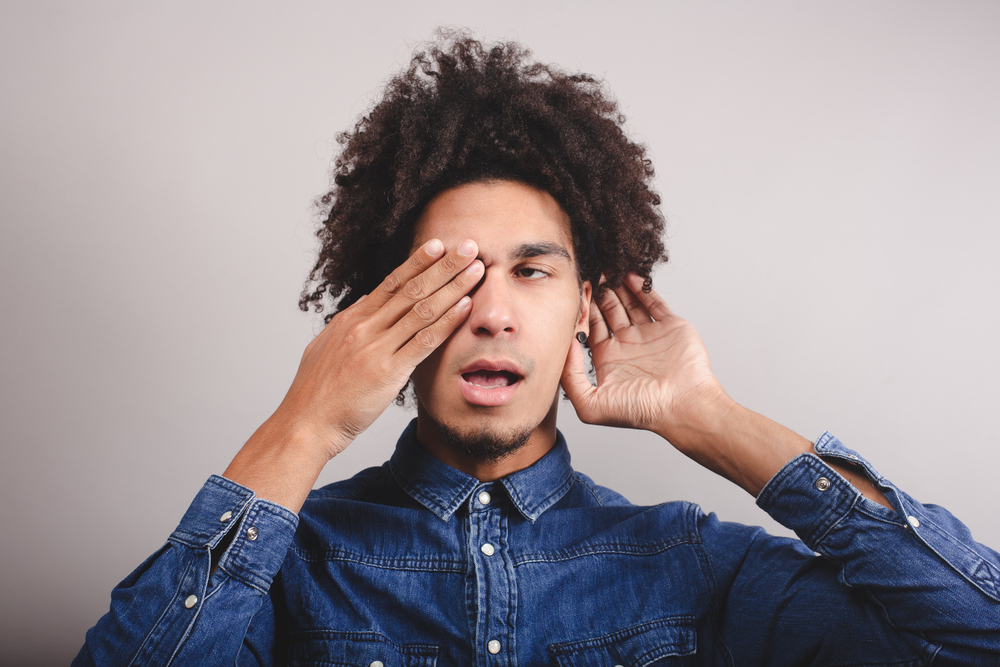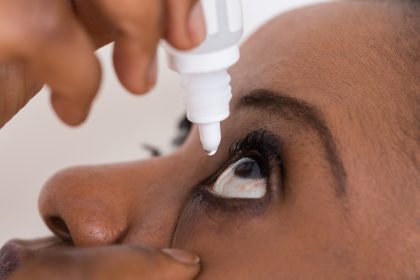Waking up with your eyelids feeling glued shut can be a confusing and unsettling experience. This phenomenon can occur for various reasons, from harmless to needing medical attention. Understanding the potential causes and how to address them can help alleviate the discomfort and prevent recurrence.
Common causes of sticky eyelids
Eye discharge
One of the most common causes of sticky eyelids is eye discharge. During sleep, our eyes produce mucus and other fluids that help protect and clean the eye. This discharge can accumulate at the corners of the eyes and along the lash line, causing the eyelids to feel sticky upon waking.
Normal eye discharge
It’s normal to have some eye discharge, often called “sleep” or “eye crust,” typically white or light yellow. This discharge can become more noticeable if you have had a particularly long or deep sleep.
Abnormal eye discharge
However, if the discharge is excessive, changes color (e.g., green or dark yellow), or is accompanied by other symptoms such as redness, pain, or blurred vision, it may indicate an underlying eye condition that needs medical attention.
Conjunctivitis (pink eye)
Conjunctivitis, commonly known as pink eye, is an inflammation of the conjunctiva, the thin layer covering the eye’s white part and the eyelids’ inner side. This condition can cause your eyelids to stick together due to increased eye discharge, which can dry and form a crust overnight.
Types of conjunctivitis
Several types of conjunctivitis include viral, bacterial, and allergic conjunctivitis. Each type has different causes and treatments:
- Viral conjunctivitis: Often caused by the same viruses that cause the common cold, it is highly contagious and usually resolves on its own.
- Bacterial conjunctivitis: Caused by bacteria, it may require antibiotic eye drops or ointment for treatment.
- Allergic conjunctivitis: Triggered by allergens like pollen or pet dander, it can be managed with antihistamines and avoiding allergens.
Dry eye syndrome
Dry eye syndrome occurs when your eyes don’t produce enough tears or the tears evaporate too quickly. This can lead to dryness and irritation, causing your eyelids to stick together, especially after a night’s sleep.
Symptoms of dry eye syndrome
Symptoms include a gritty feeling in the eyes, burning or stinging, sensitivity to light, and blurred vision. Over-the-counter artificial tears or prescription medications can help manage the symptoms.
Blepharitis
Blepharitis is an inflammation of the eyelids, often caused by bacterial infection or skin conditions like dandruff or rosacea. This condition can lead to crusty buildup at the base of the eyelashes, making it difficult to open your eyes in the morning.
Managing blepharitis
Good eyelid hygiene is crucial for managing blepharitis. Regularly cleaning the eyelids with a warm, damp cloth and using prescribed medications can help reduce symptoms and prevent recurrence.
Allergies
Allergic reactions to substances like pollen, dust mites, or pet dander can cause the eyes to produce more mucus. This increased discharge can lead to sticky eyelids upon waking.
Treating allergies
Using allergy medications, such as antihistamines, and avoiding allergens can help reduce symptoms. Keeping your living environment clean and using air purifiers can also minimize exposure to allergens.
Eye infections
Various eye infections can cause increased eye discharge and inflammation, leading to sticky eyelids. These infections may include:
- Keratitis: An infection of the cornea, often caused by bacteria, viruses, or fungi. Symptoms include redness, pain, and blurred vision.
- Uveitis: Inflammation of the uvea, the middle layer of the eye, which can cause pain, redness, and light sensitivity.
Seeking medical attention
If you suspect an eye infection, it’s important to seek medical attention promptly. Your doctor can prescribe the appropriate treatment to address the infection and alleviate symptoms.
Preventive measures and remedies
Maintaining eye hygiene
Keeping your eyes and eyelids clean can help prevent conditions that lead to sticky eyelids. Regularly washing your face and eyelids, especially before bed, can reduce the buildup of eye discharge.
Using eye drops
Over-the-counter artificial tears can help keep your eyes moist and reduce dryness that may cause sticky eyelids. If you have a diagnosed eye condition, use any prescribed eye drops or ointments as directed by your doctor.
Applying warm compresses
A warm compress can help soften and remove crusty eye discharge. Simply soak a clean cloth in warm water, wring out the excess, and place it over your closed eyes for a few minutes.
Avoiding allergens
If allergies are causing your sticky eyelids, take steps to minimize your exposure to allergens. Keep windows closed during high pollen seasons, use air purifiers, and regularly clean your home to reduce dust and pet dander.
When to see a doctor
While occasional sticky eyelids are usually harmless, there are times when you should seek medical attention. If you experience any of the following symptoms along with sticky eyelids, consult an eye care professional:
- Persistent redness or pain
- Blurred vision
- Swelling or tenderness around the eyes
- Unusual or colored discharge
- Sensitivity to light
These symptoms could indicate an underlying condition that requires professional treatment.
Conclusion
Waking up with your eyelids stuck together can be a nuisance, but understanding the potential causes and remedies can help you manage this condition. Whether it’s due to normal eye discharge, conjunctivitis, dry eye syndrome, blepharitis, allergies, or an eye infection, there are steps you can take to alleviate the discomfort and prevent recurrence. Maintaining good eye hygiene, using appropriate treatments, and seeking medical advice when necessary can ensure your eyes remain healthy and comfortable.
By taking proactive measures and paying attention to your eye health, you can reduce the likelihood of experiencing sticky eyelids and enjoy clear, comfortable vision every morning. If you have concerns or persistent symptoms, don’t hesitate to reach out to an eye care professional for guidance and treatment. Your eyes are a vital part of your overall health, and taking care of them should always be a priority.
This story was created using AI technology.















